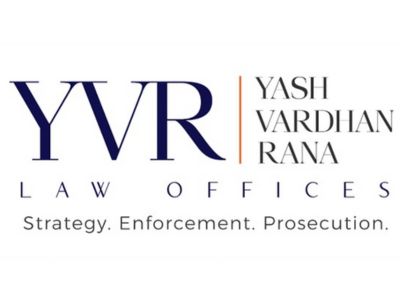In a landmark ruling, the US District Court for the District of Delaware has ordered AstraZeneca to pay Pfizer $107.5 million in damages for infringing on patents related to the lung cancer drug ‘Tagrisso.’ This case marks a significant victory for Pfizer in the fiercely competitive pharmaceutical industry.
The patents at the heart of the dispute, licensed by Pfizer to Puma Biotechnology for the production of the breast cancer drug ‘Nerlynx,’ were found to have been infringed upon by AstraZeneca’s ‘Tagrisso.’ The jury concluded that Tagrisso violated Pfizer’s Wyeth unit’s patent rights under US patents 10,603,314 and 10,596,162.
The jury’s findings
The jury found that AstraZeneca infringed upon three claims of Wyeth’s ‘314 patent and one claim of the ‘162 patent. These violations were relevant for both the second-line and first-line adjuvant use of Tagrisso. Despite the infringement, the jury found no evidence of wilful violation on AstraZeneca’s part.
The validity of Wyeth’s claims was also upheld, with jurors unanimously agreeing that AstraZeneca had not provided “clear and convincing evidence” to invalidate the patents. The jury dismissed all of AstraZeneca’s challenges to Wyeth’s patents, which included arguments about lack of enablement, written description, anticipation, and obviousness.
Background of the lawsuit
Wyeth, acquired by Pfizer in 2009, initiated the lawsuit against AstraZeneca in 2021, claiming that Tagrisso infringed on two essential patents. The ‘314 patent covers methods for treating non-small cell lung cancer (NSCLC) patients resistant to gefitinib and/or erlotinib with an EGFR blocker that covalently binds to the protein’s cysteine 773 residue. The ‘162 patent protects the use of these irreversible inhibitors to treat NSCLC patients with the specific T790M mutation on the EGFR protein, which is resistant to gefitinib or erlotinib.
These technologies are employed by Wyeth and Puma Biotechnology in the production of Nerlynx (neratinib), a kinase inhibitor similar to Tagrisso that irreversibly binds to EGFR. Nerlynx is indicated for HER2-positive breast cancer.
Implications of the ruling
This ruling underscores the critical importance of intellectual property rights in the pharmaceutical industry. Tagrisso, first approved by the FDA in November 2015 for the treatment of NSCLC patients carrying the T790M EGFR mutation, has been a cornerstone of AstraZeneca’s oncology portfolio. The drug works by targeting and inhibiting specific mutant forms of the EGFR protein, thereby disrupting the growth and proliferation of cancer cells.
Since its regulatory approval, Tagrisso has become one of AstraZeneca’s top-performing products. In the first quarter of 2024, Tagrisso was the company’s best-selling cancer drug, generating nearly $1.6 billion, a 15% increase. In 2023, Tagrisso’s sales reached nearly $5.8 billion, making it one of AstraZeneca’s most valuable assets, second only to the diabetes treatment Farxiga (dapagliflozin).
AstraZeneca’s response
Despite the unfavorable verdict, AstraZeneca remains resolute. A company spokesperson expressed disappointment in an emailed statement, highlighting that a bench trial on additional defenses raised by AstraZeneca is scheduled for next month. A final judgment will be entered following the bench trial, indicating that the legal battle may not be entirely over.
Broader industry impact
This case highlights the ongoing challenges in the pharmaceutical industry regarding patent rights and intellectual property. As companies continue to innovate and develop new treatments, the protection of these innovations through patents remains a contentious and crucial aspect of the business. The significant damages awarded to Pfizer emphasize the serious consequences of patent infringement and the need for rigorous legal and regulatory compliance in drug development and commercialization.
Conclusion
The Delaware court’s ruling in favor of Pfizer against AstraZeneca sets a precedent in the enforcement of pharmaceutical patents. As the industry moves forward, this case will likely serve as a critical reference point for future disputes. For now, Pfizer’s victory not only reinforces its patent rights but also underscores the value of its acquisition of Wyeth, which continues to pay dividends years later.
AstraZeneca’s future strategies will undoubtedly be influenced by this decision, as the company navigates the complex landscape of drug development and patent law. The forthcoming bench trial may further shape the outcome of this high-stakes legal battle.

Written by Yashvardhan Rana
Founder and Principal Attorney, YVR Law Offices
You may also like…
Pravin Anand conferred with the APAA Enduring Impact Award
Pre-eminent IP Lawyer and Managing Partner of Anand and Anand, Mr Pravin Anand, has been conferred with the...
The quiet power of confidentiality clubs in SEP litigation
In standard essential patent (SEP) disputes, especially those involving FRAND (Fair, Reasonable, and...
A $10 million patent win reduced to a $1 lesson in damages
In a decision that will resonate as a stark warning to patent litigants, the US Court of Appeals for the Federal...
Contact us to write for out Newsletter














